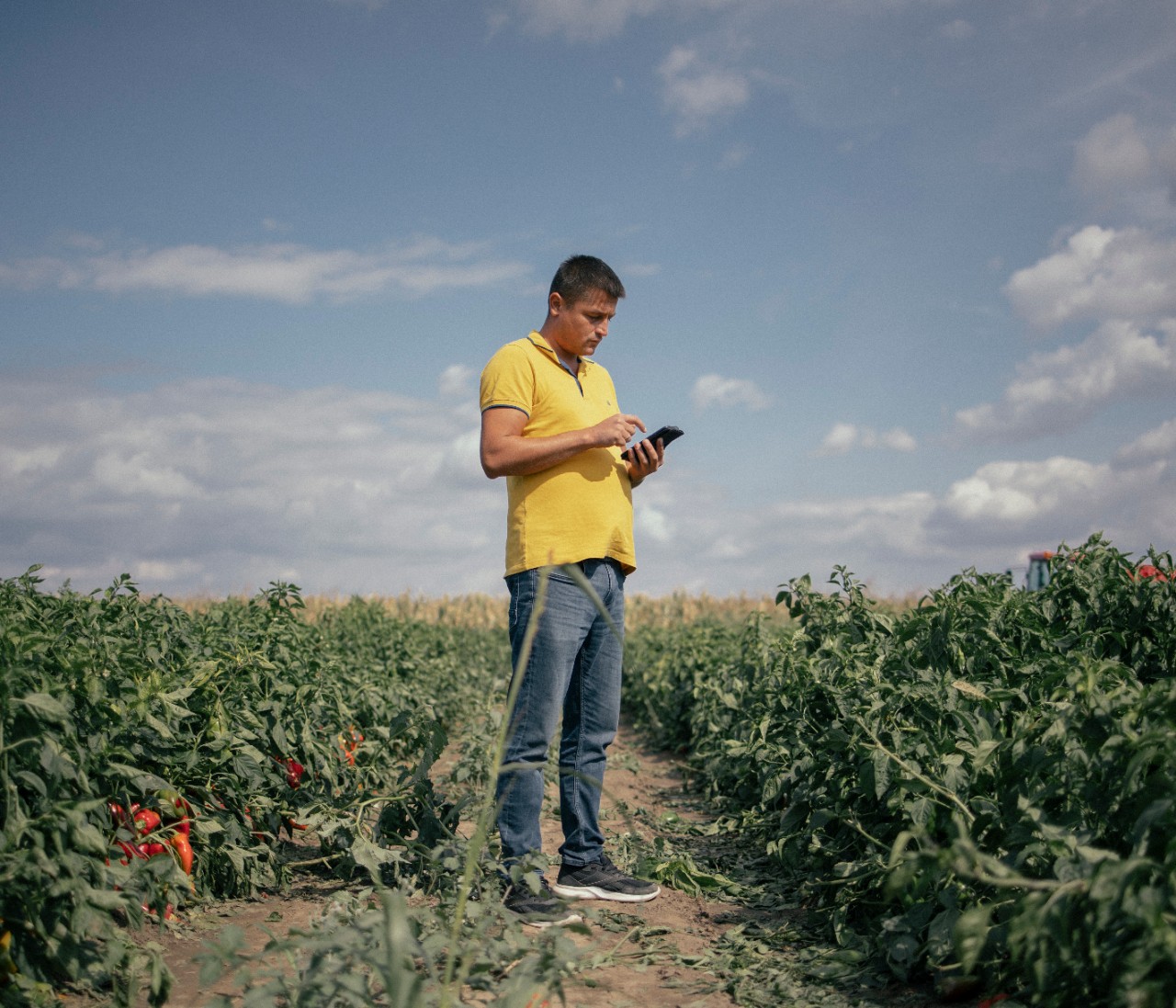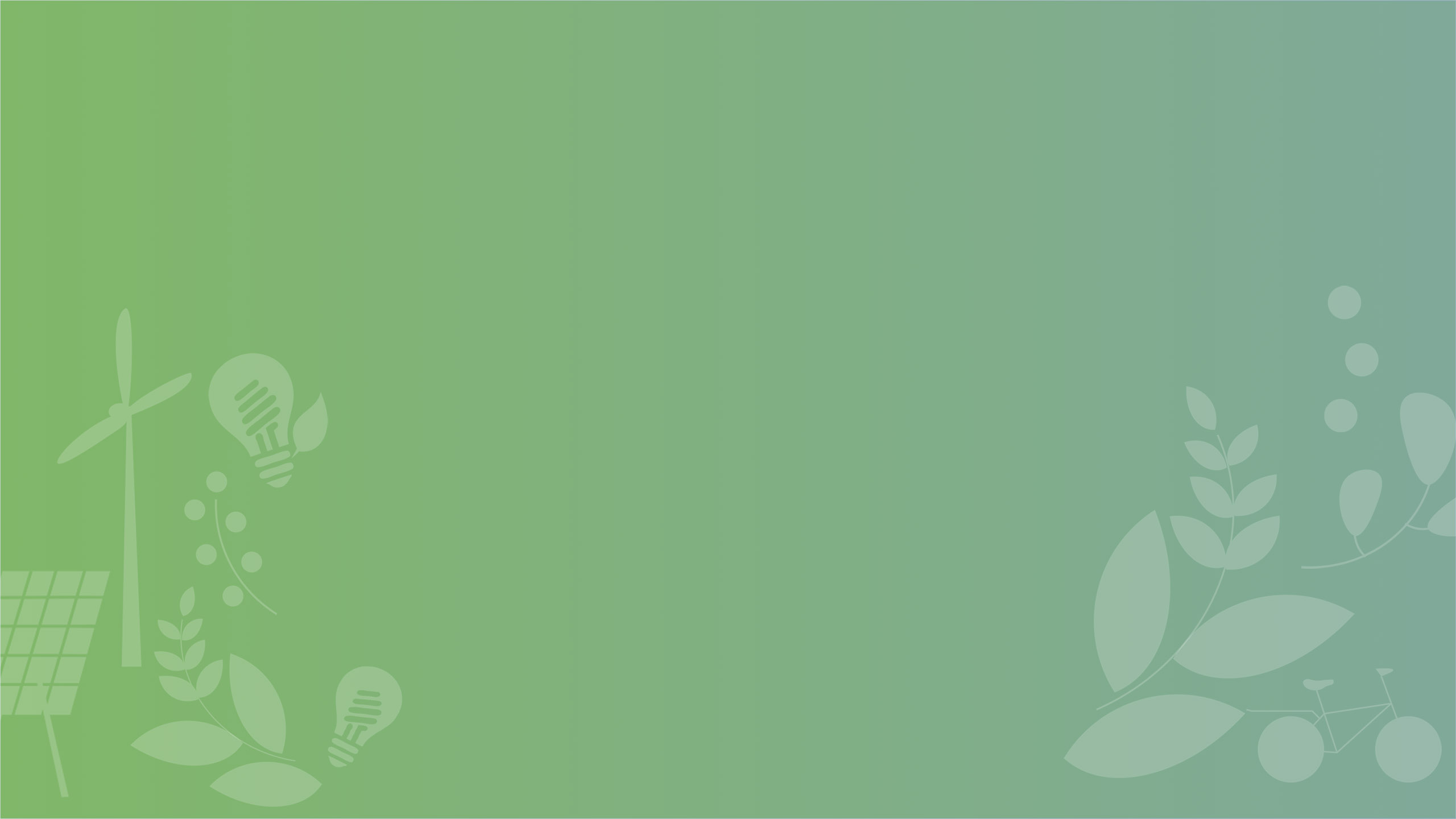-
Jan 10 2022 How the First Digitized Farm in Serbia Increased Yield Despite Drought
Outside the village of Belegiš, a dusty road across dry, cracked land, surrounded by dried maize fields, leads to a green oasis on the field crop farm of Nikola Lončar. This farmer, born and raised in Belegiš, is the first one in Serbia to embark on the adventure of digitizing the fields where he grows vegetables for sale. One of the reasons for pioneering this approach in Serbian agriculture is the high risk brought on by droughts in recent years.
The scale of the risk is witnessed by the fact that in 2021 Serbia broke a dismal record for high temperatures by recording the hottest month of June in the past 100 years.
– It has been increasingly unstable in the past five or six years, or even longer. The climate is changing year after year. Rainfall is irregular. It is too high in the spring, and non-existent in the summer when it is needed most. During my time as a farmer, we never had total damage to crops like we did four years ago – explains Nikola.
It was in that same year that Nikola made contact with experts from Mihajlo Pupin Institute of Belgrade, from whom he procured the smart device Mobisan – a mobile solar power generator. Mobisan was developed by a multidisciplinary team of engineers and crop scientists, specifically for small and medium-sized family farms, since over 95 percent of Serbia’s registered farms have under 10 hectares of land.
– The device is a combination of sensor and computer networks. It includes sensors in the soil, a digital weather station and a computer system that wirelessly collects information about microclimate and soil. On the basis of the information collected, it automatically irrigates the field and adds fertilizer, or transfers the information to Nikola through a mobile app, so that Nikola could adjust water and nutrient dosage for the plants. Mobisan can be operated remotely and is designed to streamline the use of natural resources. It supplies the soil with no more and no less than what is needed, but just the right amount. This enables financial savings and also protects the soil from excess chemicals – explains Aleksandar Rodić, head of the Robotics Laboratory at Mihajlo Pupin Institute.
This year, Nikola had 20 hectares of land under maize, 10 under wheat, and more than 4 under vegetables. He successfully grew two field crops on the same field by irrigating them throughout the six-month growing season. He notes that the current system enables yield stability, which is a key prerequisite for contracting vegetable sales to large retailers.
– Early in the year, I plant vegetables for known buyers. I negotiate quantities for specific buyers already in the winter and spring. Without stable yield, I cannot fulfil the contract, and then I am subject to penalties.
Thanks to the fact that Mobisan is powered by sun and wind, Nikola no longer uses diesel fuel, thus saving money and protecting the environment from pollution. For a 10-hectare field, replacing a diesel generator with a solar one saves 3,375 euros per season in fuel, as well as 6,750 kg in CO2 emissions. In addition, the yield has been increased by as much as 30 percent. The total pepper yield per season now amounts to 10 wagonloads.
– I save time, as I do not need to go to the field all the time to open and close valves – the device does all of it. The system tells me how much fertilizer and nutrients to add, how much to irrigate and for how long. I save electricity and water and preserve the soil. After we installed this system, I took my first real vacation, as it all functioned well without me. I operated the device from the beach in Greece – says farmer Nikola.
The investment in a 10-hectare digital field pays off in three years.
– For Serbian agriculture, mobility combined with renewable energy sources is the way to go. Besides the scientific and professional challenge, we were guided by the ethical motive to help Nikola, as a representative example of those 95 percent of family farms, because more than a million people in Serbia make a living by farming. The solution is not to merely give them subsidies; it is also necessary to teach them and give them the technology to be successful – stresses Aleksandar.
Technological innovation in agriculture enables adapting to the changing climate, while at the same time contributing to greenhouse gas (GHG) emission reduction.
***
Mihajlo Pupin Institute’s “Development of Innovative Solutions in the Area of Smart Land Management in Agriculture” was selected as one of the 11 best innovative and climate-smart solutions within the “Climate Smart Urban Development” project, implemented by the United Nations Development Programme (UNDP) in partnership with the Ministry of Environmental Protection, with financial support from the Global Environment Facility (GEF).
-
Jul 08 2021 Six innovative bio-waste management ideas received financial support
Six innovative solutions that will contribute to the reduction of generation, as well as the reuse of biodegradable waste in Serbia, have received co-financing funds for their implementation in practice.
These solutions were selected under the “Bio-waste Management Challenge Call” organized by the United Nations Development Programme (UNDP) and the Ministry of Environmental Protection, with the support of the Swedish International Development Cooperation Agency (Sida). The goal of this challenge was to identify and support the implementation of innovative solutions for management of food waste and kitchen waste, as well as green waste from parks and gardens.
The implementation of selected ideas will contribute to the reduction of the bio-waste by better procurement planning, separation of recyclable waste, use of biodegradable waste for the production of compost for fertilizers, pellets and briquettes for energy production, but also the production of soaps and edible oils.
These innovative solutions will also contribute to the reduction of greenhouse gases (GHG) emission and pollution, as well as the development of the circular economy in Serbia.
Thanks to the idea of the Public Utility Company “Higijena Pancevo”, a system of communal waste separation in individual households will be introduced in Serbia for the first time. This project will cover 300 households in the “pilot zone” of the city. Each household will receive a home composter, for the disposal of food waste and green waste. The compost created in that way can be used as fertilizer. In addition, households will receive a container for PET packaging separation and a container for mixed communal waste, while they will also be able to dispose of glass waste at common street checkpoints. “Higijena Pancevo” will measure the amount of waste collected in this way and keep electronic records about it, so that households pay for the waste collection service according to the amount of waste they dispose of.
In the vineyards on the territory of the municipality of Vrsac, large amounts of waste are generated from the branches, which mostly end up at landfills or are set on fire, like stubble. Dairy “Petrov” from Veliko Srediste near Vrsac came up with the idea to use grape branches to produce bio-pellets, which will be used as fuel for the needs of the dairy production. Dairy “Petrov” is already baling and using straw from its farm for that purpose, but they decided to introduce a new practice, since pellets from grape residues have a better caloric value, compared to straw. This will produce more energy with fewer raw materials.
The civil society organization “BIOIDEA”, in cooperation with the „Institute of General and Physical Chemistry” from Belgrade, has created a soap and candle production procedure from edible oil waste at home. They will distribute 2000 zeolite containers, in which the oil used in food preparation can be purified, as well as a recipe for soap production, free of charge to the interested citizens. The organization will also train women living in rural areas of Serbia to make soaps and candles from edible oil waste, in order to provide themselves with a source of income.
The company “Agrose” from Mladenovac, engaged in the production of jams and fruit purees, will use the seeds that remain after fruit processing to produce various sorts of edible oils for human use, as well as flour that can be used as a dietary supplement for animals. In this way, they will reduce the amount of food waste generated in the fruit processing chain.
The company “Hyperether” Ltd from Novi Sad will develop a mobile application based on artificial intelligence, which will contribute to the food waste reduction, by monitoring the expiration dates of the food in the refrigerator and by warning users of the application to use it on time. The application will do this based on the photos of food in the refrigerator and will also offer recipes for preparing meals based on the available groceries. The mobile application will be available to citizens free of charge, while a commercial version will be offered to hotels, restaurants and cafes, for better procurement planning.
In order to make the most of biodegradable waste from landfills, Public Utility Company “Regional Center for Waste Management Duboko Uzice” will produce pellets and briquettes from larger pieces of wood, as well as decorative mulch from the remains of wood. A composting plant will be opened at the landfill, where all other biodegradable waste from households will be preserved and processed into quality compost, which is used as a soil fertilizer.
***
The „Bio-Waste Management Challenge” project is implemented by the United Nations Development Programme” (UNDP) in partnership with the Ministry of Environmental Protection, with the support of the Swedish International Development Cooperation Agency (Sida).



